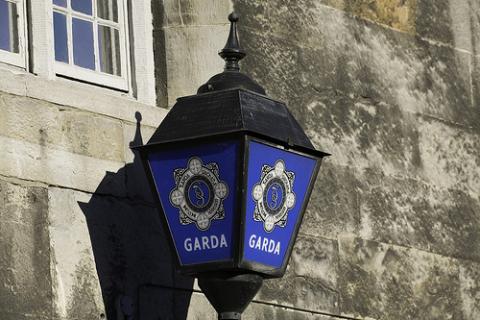Guardians of the peace?

Would the gardaí have been as relaxed as they appeared to have been about the emergent mayhem in Tallaght if it happened in Dublin 4? By Vincent Browne.
There was a disturbing insight into the character of An Garda Síochána last week, and it concerned the murder of 16-year-old Melanie McCarthy-McNamara in Tallaght last Tuesday night.
An RTÉ news reporter, Conor McMorrow, visited the site of the murder at Brookview Way in Tallaght and spoke to residents. A woman told him: "It's normal around here - there's everyone getting shot, burned out. So a bit of a shock there's been, but it's usual at the moment."
A man said: "A couple of us were saying 'It's only a matter of time before there is a shooting in the area because of all the carry on that's going on'."
Someone else said: "It's a bit of a feud that's going on."
Another said: "I'm not surprised. There's a lot going on around here with guns and drugs."
A woman named Sharon, who heard the gunshot, said to someone at the moment of the fatal shooting that the explosive sound was not a gunshot, but that of a car being blown up, implying that it was a regular occurrence in the neighbourhood.
She went on to say: "[Around the corner] you'll see all the houses all boarded up, and that's only in the last week or two. They've gotten out of their houses, be it nailbombs and for whatever reason [that caused people to flee]. So it was just a matter of time.
"My friend rang me the other day - she works with one of the drug rehabilitation people - and she rang me and said: 'Sharon, this is just getting ridiculous, absolutely ridiculous. The carry-on that's going on between families, getting turfed out [of their homes].' "
In other words, local people were saying there had been violence and tension in the area in the recent past.
People were being intimidated out of where they lived, and houses were being boarded up as people fled. There was an expectation of an escalation of this violence and, for some residents, it was not surprising that someone had been killed.
The question that arises immediately is what the gardaí, our "guardians of the peace", were doing about this. Did they know of the heightening tension and violence? If not, what does that say about their guardianship? If they did know, why did they not guard the peace, since it was obvious - at least to some residents - that the peace was being violated and that there was a real risk of it being even more extensively violated?
Suppose that something similar had happened in another troubled area of Dublin: say in the heart of Dublin 4.
I say "troubled" because, per head of population, there are more high-flyers, movers and shakers and developers in that area than any other suburb, more representatives of the crowd that did more harm to this country than anywhere else outside Leinster House.
If people had been intimidated out of their homes in salubrious Shrewsbury Road over a period of a week or two, and if there had been indications of incipient violence, with a proliferation of guns in the vicinity and a few cars blown up on a regular basis, would the gardaí have been as relaxed as they appeared to have been to the emergent mayhem in Tallaght? And, by the way, would the media also have ignored what was going on?
There was a revelatory moment last Friday in the Smithwick Tribunal, the tribunal which is enquiring into allegations that moles in Dundalk garda station colluded with the IRA in the murder of two RUC officers, Harry Breen and Robert Buchanan on March 20, 1989.
Pat O'Toole, a former assistant Garda Commissioner in charge of crime and security, was giving evidence and was being questioned by counsel for the tribunal, Justin Dillon.
He was being asked about the credibility of a Garda investigation in 2000 into claims by Jim Higgins - then a Fine Gael TD and now an MEP - in the Dáil, and by the Democratic Unionist MP Jeffrey Donaldson in the House of Commons, that they had evidence of such collusion.
An earlier inquiry into these claims, which found no evidence supporting them, had not even spoken to either of the two politicians.
O'Toole found nothing odd about that, as the politicians could have volunteered to go to the Garda authorities themselves but had not done so.
Anyway, Garda intelligence had "established" that collusion would have been unnecessary, as the IRA was able to establish independently what it needed to know in order to carry out the assassinations.
O'Toole is to resume his evidence on Tuesday, but what was striking about his testimony was the obdurate refusal even to utter a hint of criticism of Garda colleagues in the face of facts which clearly suggested indifference and incompetence by the gardaí.
From his demeanour in the witness box, O'Toole seems a decent person and, very probably, was an able Garda officer in his day.
But it was his dogged loyalty in the face of persistent questioning that was the most memorable.
Image top: infomatique.
